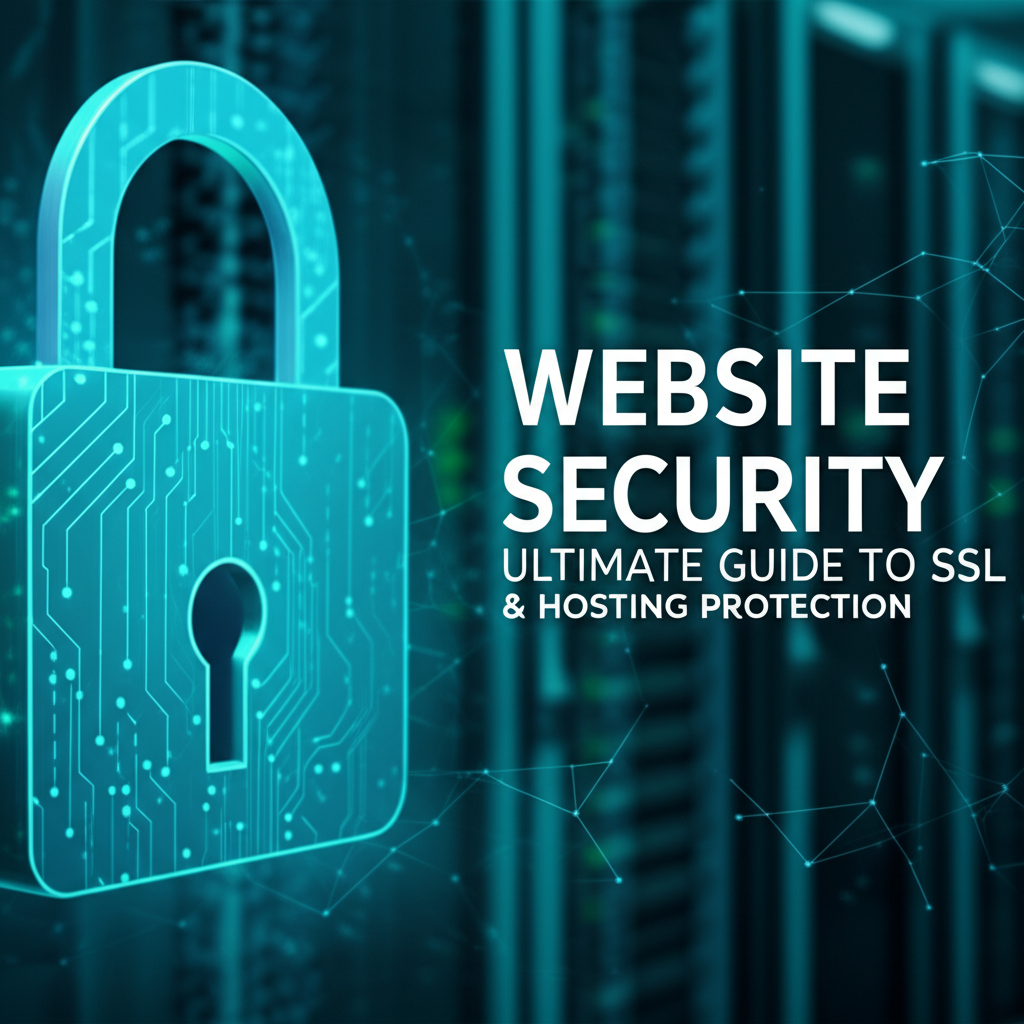- Understanding the Importance of Website Security
- Website Security: The Role of SSL Certificates
- How SSL Certificates Work
- Types of SSL Certificates
- Website Security Best Practices: Hosting Protection
- Choosing a Secure Hosting Provider
- Implementing Additional Security Measures
- Strengthening Website Security: A Continuous Effort
Website Security: Ultimate Guide to SSL & Hosting Protection
Website security is paramount in today’s digital landscape. With cyber threats constantly evolving, safeguarding your online presence is no longer optional but essential for businesses and individuals alike. This comprehensive guide delves into two critical aspects of website security: SSL certificates and robust hosting protection. Understanding and implementing these measures can significantly reduce your vulnerability to attacks, protect sensitive data, and build trust with your audience.
Understanding the Importance of Website Security

In an interconnected world, websites face a barrage of potential threats, ranging from malware injections and data breaches to phishing attacks and denial-of-service (DoS) attempts. These attacks can cripple your website’s functionality, compromise user data, damage your reputation, and even lead to legal repercussions. Investing in robust security measures is not just about protecting your website; it’s about safeguarding your entire online presence and the trust you’ve built with your visitors.
Website Security: The Role of SSL Certificates
SSL (Secure Sockets Layer) certificates are the foundation of online security. They encrypt the communication between a user’s browser and your website server, preventing unauthorized access to sensitive data like login credentials, credit card information, and personal details. Essentially, SSL certificates act as a digital bodyguard for data transmitted to and from your website.
How SSL Certificates Work
When a user visits a website secured with an SSL certificate, their browser verifies the certificate’s authenticity. Once verified, a secure, encrypted connection is established, represented by the padlock icon and “https” in the browser’s address bar. This encryption ensures that any data exchanged between the browser and the server remains confidential and tamper-proof.
Types of SSL Certificates
Several types of SSL certificates cater to different needs and budgets:
Domain Validated (DV) Certificates: These are the most basic and affordable type, offering quick validation of domain ownership. Ideal for blogs, personal websites, and small businesses.
Organization Validated (OV) Certificates: OV certificates require more extensive verification, including verifying the organization’s legitimacy. They offer a higher level of trust and are suitable for businesses and e-commerce websites.
Extended Validation (EV) Certificates: EV certificates provide the highest level of assurance, requiring rigorous vetting of the organization’s identity. Websites with EV certificates display the organization’s name in the address bar, further boosting user trust.
Website Security Best Practices: Hosting Protection
While SSL certificates secure the connection between the browser and the server, robust hosting protection safeguards the server itself and its underlying infrastructure. Choosing a secure hosting provider and implementing appropriate security measures is vital for comprehensive website protection.
Choosing a Secure Hosting Provider
When selecting a hosting provider, consider the following security features:
Firewall Protection: A robust firewall acts as a barrier between your server and malicious traffic, filtering out unauthorized access attempts.
Malware Scanning and Removal: Regular malware scanning and automated removal services help identify and eliminate threats before they can cause damage.
Intrusion Detection and Prevention Systems (IDPS): IDPS monitor network traffic for suspicious activity and automatically take action to block or mitigate threats.
Data Backups: Regular backups ensure that you can restore your website quickly in case of data loss due to attacks or technical failures.
Server Hardening: Server hardening involves configuring server settings to minimize vulnerabilities and enhance security.
Implementing Additional Security Measures
Beyond choosing a secure hosting provider, consider these additional measures:
Strong Passwords and Two-Factor Authentication: Enforce strong password policies and implement two-factor authentication for all user accounts.
Regular Software Updates: Keep your website’s software, including content management systems (CMS), plugins, and themes, up-to-date to patch security vulnerabilities.
Web Application Firewalls (WAFs): A WAF filters malicious traffic specifically targeting web applications, providing an additional layer of protection.
Security Audits: Conduct regular security audits to identify potential vulnerabilities and address them proactively.
Strengthening Website Security: A Continuous Effort
Website security is not a one-time fix but an ongoing process. Cyber threats are constantly evolving, and staying ahead requires vigilance and proactive measures. By implementing the strategies outlined in this guide, you can significantly enhance your website security, protect your valuable data, and foster trust with your audience. Regularly reviewing and updating your security measures is crucial to maintaining a robust defense against evolving threats. Investing in website security is an investment in your online success, protecting your reputation and ensuring a safe and reliable experience for your users.











Leave a Reply